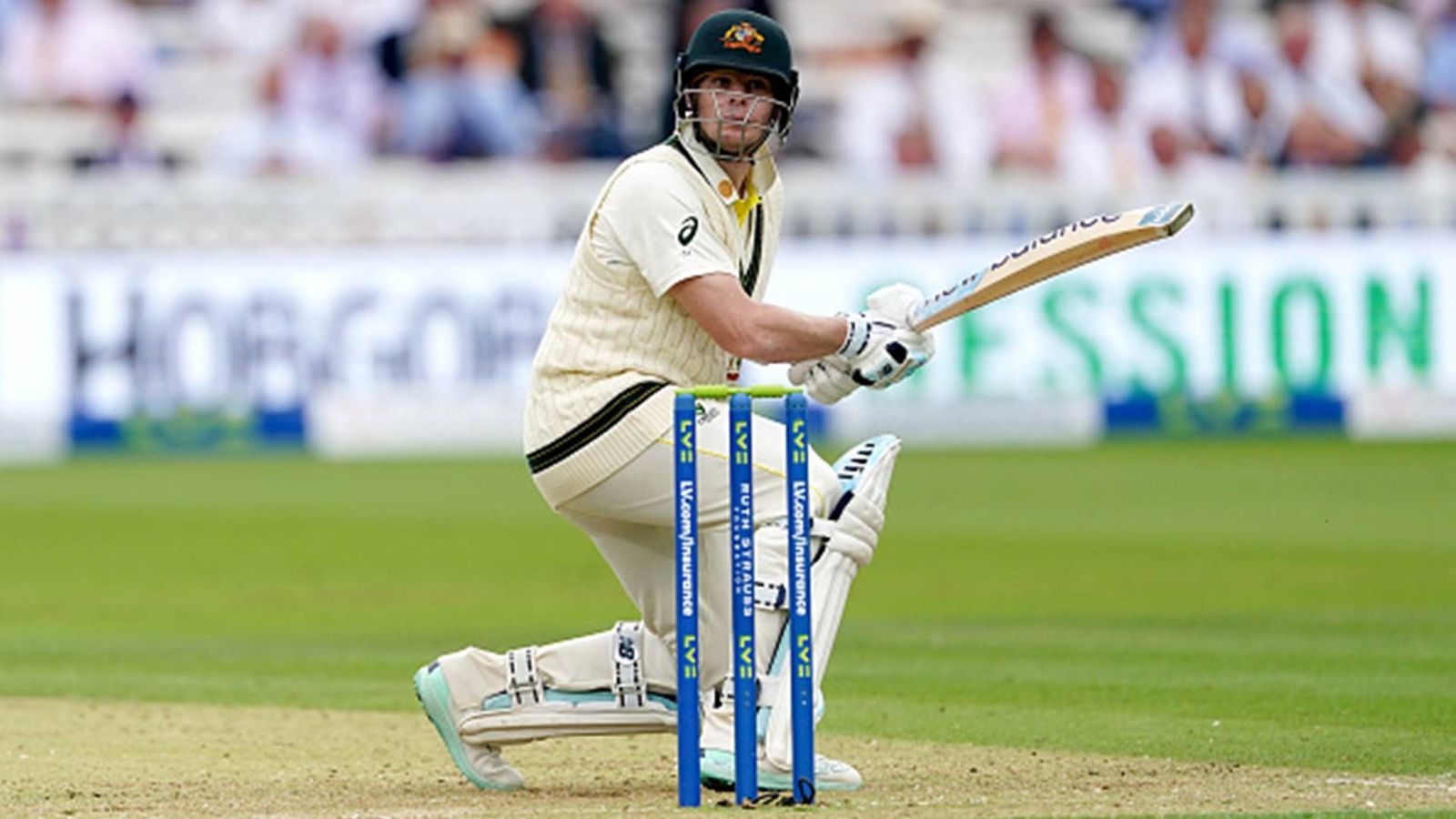Steve Smith rewrote history books on Day 1 of second Ashes 2023 Test at Lord's London. In the second session of Day 1, Smith became the second-fastest to 9,000 Test runs. The former Australia skipper took 174 innings to achieve the milestone.
Smith reached the rare feat in the 42nd over of Australia's first innings. Smith hit the ball towards mid-wicket and mid-on for a boundary to complete 9,000 Test runs.
The record for fastest to 9,000 Test runs belongs to Kumar Sangakkara as he achieved it from 172 innings. Smith is followed by India head coach Rahul Dravid (176 innings), former West Indies captain Brian Lara (177 innings) and former Australia captain Ricky Ponting (177 innings).
However Smith is the fastest to 9,000 Test runs in terms of matches. This is Smith's 99th Test. The previous record belonged to Lara who achieved the feat in his 101st Test.
Earlier in the day, David Warner became the third-highest run-scorer as opener in international cricket (Tests, ODIs and T20Is). Warner now has 16,986 runs from 419 innings at an average of 32 including 45 centuries and 85 fifties. He surpassed former South Africa skipper Graeme Smith (16,950 runs). The list is topped by former Sri Lanka opener Sanath Jayasuriya (19,298 runs) followed by West Indies’ Chris Gayle (18,867 runs).
Warner’s massive feat
Warner scored 66 runs from 88 deliveries, his first half-century in the ongoing Ashes. He got bowled by Josh Tongue. The southpaw scored 66 runs from 88 balls including eight fours and one six. The half-century helped Warner break Matthew Hayden's record. This was Warner's 60th fifty-plus score in Test cricket. This is the highest by an Aussie opener in Test cricket.
Stokes’ brave call
Earlier, England skipper Stokes won the toss and opted to field first. Even though he chose to bowl first in overcast conditions, the decision came as a surprise. Australia have not lost a Test match at Lord's while batting at Lord's since 1896. In fact, they have lost only three Tests at Lord's while batting first. All of these losses came in the 19th century.
MORE ON SPORTS TAK:


